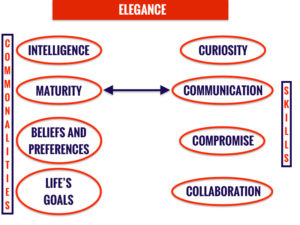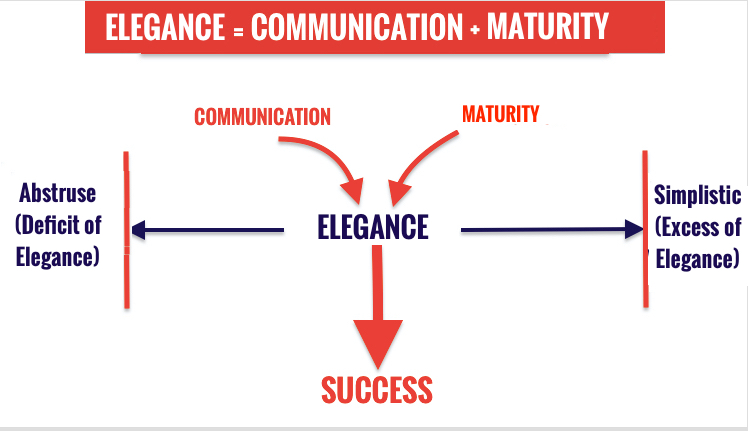Elegance is defined as "making the complex, simple to understand," and is composed of the skill of communication with the commitment trait of maturity. It is the quality of being graceful and stylish in appearance or manner; style." A slender woman with grace and elegance" is an example.

What makes Elegance unique as a character virtue, is that it makes an impression on others in a positive way, through communication that is achieved with maturity. Consider it as only affecting others by example, however, because of the trait of maturity involved, others may or may not take well to the impression, because their own maturity level may not be a match to understand and appreciate the Elegance if they are of a lower maturity level.
This also means that Elegance can be well-received even by the less mature, even if it is not necessarily intelligent (efficient or effective), which would be another matter. Remember, elegance is "making the complex, simple." And what is simple may not be intelligent. One who is open to a mind-expanding communication of maturity will accept it and mull over taking it as instruction for their growth, while those who are close-minded to growth will not.
Some very elegant messages to the public don't require their intelligence to digest the message. They just know that they like it, and on some level, understand its communication through their emotional experience of its style, its beauty - for example the mass appeal across all walks of life, by the products of the Apple Corporation: elegant music, elegant computing, writing, and all the things that can be done with a computer.

We might then often see a couple have a falling out, because there was a lack of understanding between the partners. They "just don't get" each other.
Elegance has bearing on our performance in phase three - intellectual attraction - step eight, where we seek to amplify the best virtues toward our goals.

